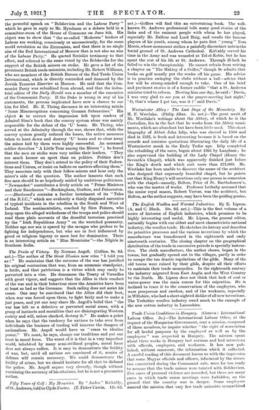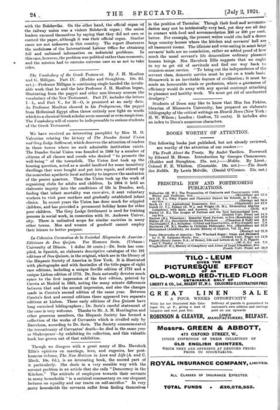Trade Union Conditions in Hungary. (Geneva : International Labour Office.
3s.)—The International Labour Office, at the request of the Hungarian Government, sent a mission, composed of three members, to inquire whether "the right of association for all lawful purposes by the employed as well as by the employers" was respected in Hungary. The mission spent about three weeks in Hungary last autumn and had interviews with officials, employers, and workmen. It has now pub- lished, without comment, the information which it collected. A careful reading of this document leaves us with the impression that some Magyar officials and officers, infuriated by the atroci- ties committed during the Communist rule, were far too ready to assume that the trade unions were tainted with Bolshevism. Few caeca of personal violence are recorded, but there are many cases in which trade union meetings were forbidden, on the ground that the country was in danger. Some employers assured the mission that very few trade unionists sympathized
with the Bolsheviks. On the other hand, the official organ of the railway union was a violent Bolshevik organ : the union leaders excused themselves by saying that they did' not own or control the paper, although it was their official organ. Similar cases are not unknown in this country. The report illustrates the usefulness of the International Labour Office for obtaining full and unbiased information on industrial problems. In this case, however, the problem was political rather than economics, • and the mission had to exercise -extreme care so as not to take sides.











































 Previous page
Previous page